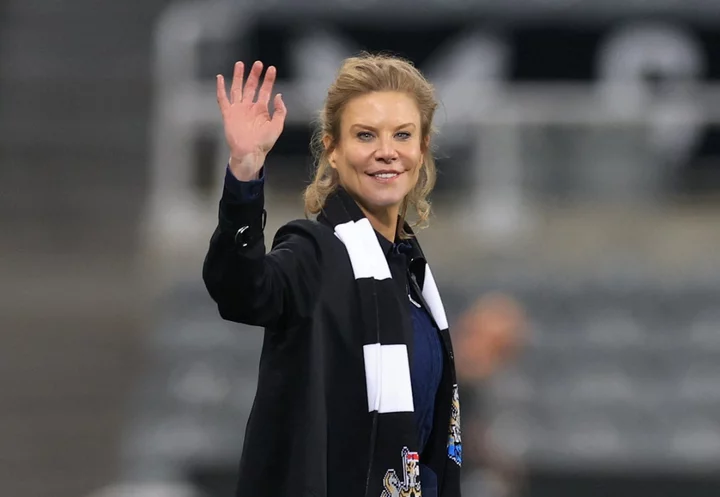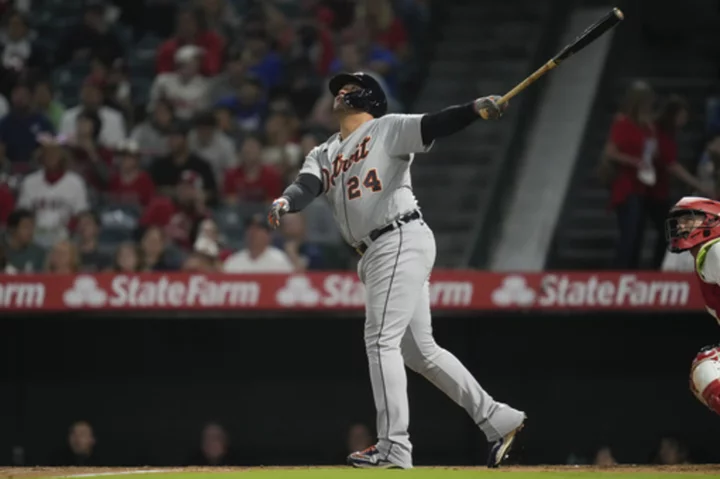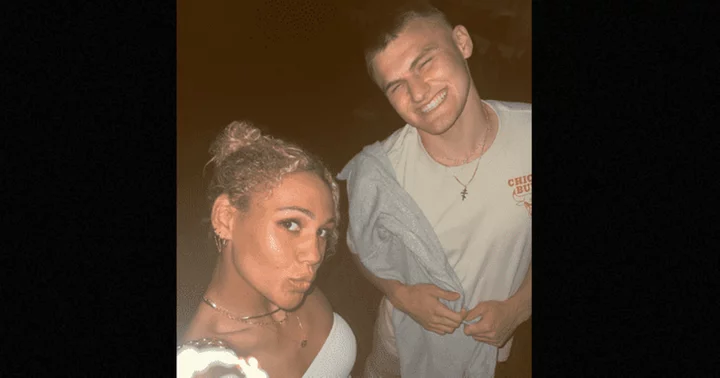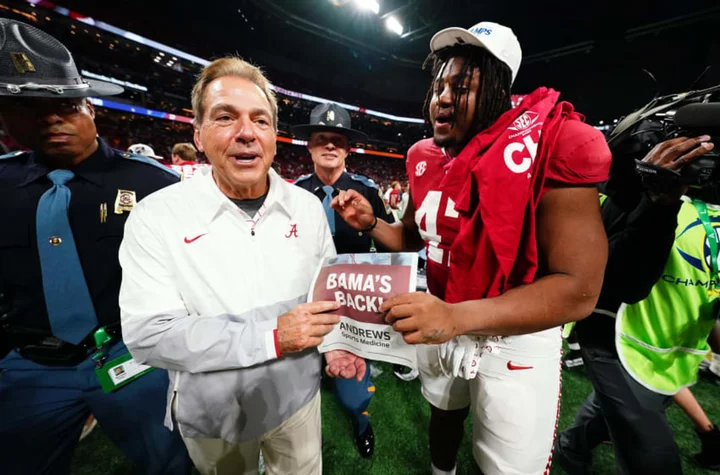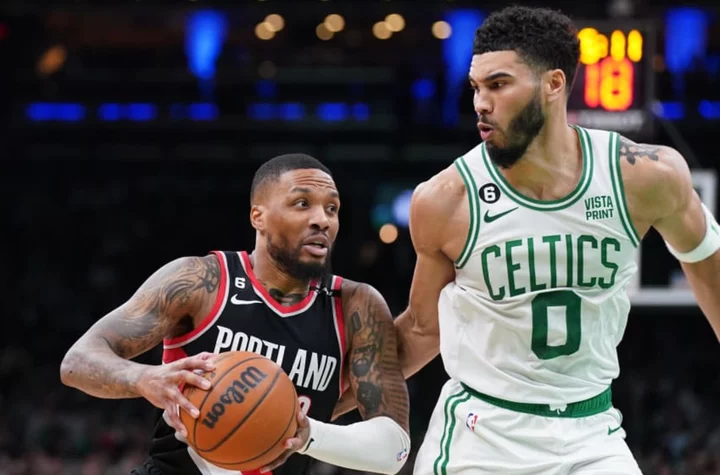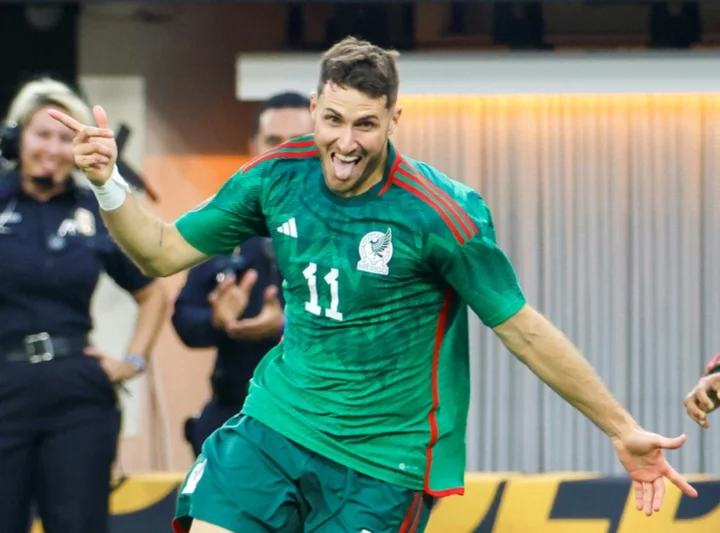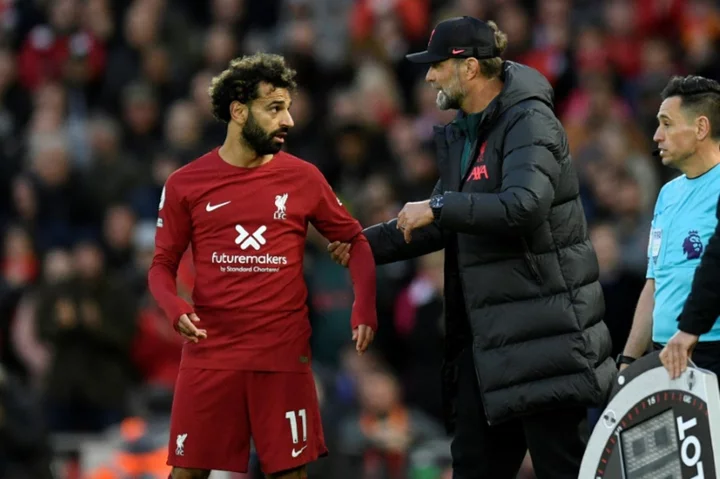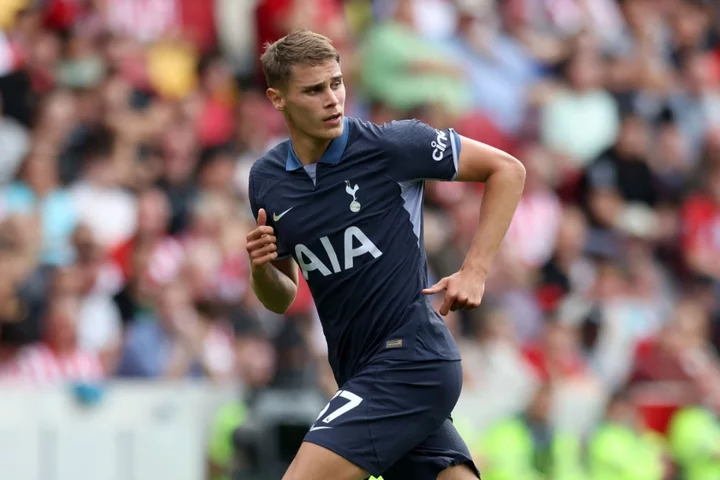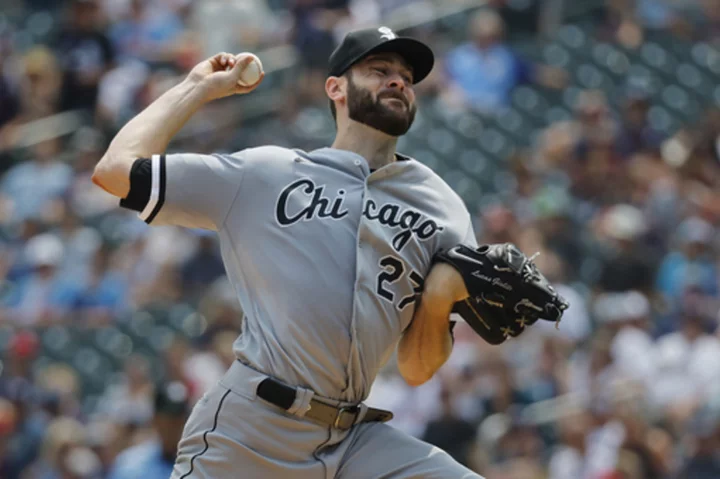Newcastle United approached 1193 companies. They had an initial meeting with 65 of them. They were whittled down to nine, and then four and eventually two. And when they find a new shirt sponsor, it is Sela, a Saudi Arabian sports events and hospitality company.
Which can seem a little convenient to some. Newcastle’s income has been inflated this summer and a commercial deal has come from the homeland of their owners, while Allan Saint-Maximin has been sold to the Saudi Pro-League. As Newcastle’s various powerbrokers discuss the Sela contract, Amanda Staveley asks if they can defend it, if it is fair market value. The answer comes in the affirmative. Some outsiders might be sceptical.
We Are Newcastle United, the new Prime Video documentary, may be the first of a new genre: the Financial Fair Play drama. It is more about the boardroom than the dressing room; less is revealed about the guarded Eddie Howe than in the deluxe settings of Alnwick Castle, where his employers discuss the bottom line more than the forward line. There is, admittedly, little suspense in discovering that Newcastle do, after all, find a shirt sponsor but its importance is underlined. The underlying issue is how to create enough revenue within the rules for the world’s richest club to be able to compete with the Premier League’s wealthiest. It is not as simple as just pumping money in.
“We are not going to overspend otherwise we will be in big trouble on Fair Play,” says Yasir Al-Rumayyan, the Newcastle chairman. Staveley reflects on the Carabao Cup final defeat by referencing Manchester United’s vast commercial income. At another point, she frets: “If we can only spend a certain amount we have to assume we are not going to get Champions League next season.”
It is no spoiler to say they do and no surprise their sights are set higher again.
“We want to be a Real Madrid, a Barcelona. To get ourselves to that point we need to spend money,” says Mehrdad Ghodoussi, Staveley’s husband and another co-owner. Al-Rumayyan adds: “We want to compete not only for the third or fourth position, we want to be No 1.”
There is no lack of ambition: Al-Rumayyan wants the worth of the Saudi Public Investment Fund to reach $2 trillion and Newcastle’s value to increase tenfold.
If it suggests he is no mere benefactor, there is a sense Newcastle feel themselves the bogeymen for the rest of the division. Their version of events is broadcast, their adversaries – apart from a couple of press-conference clips of Jurgen Klopp – are usually off-screen. But there is pushback to their takeover.
“I think there was a fear we would have an unfair advantage,” complains Staveley. “They said it was the Saudi state, which is absolute rubbish. It is not Saudi Arabia, it is the Public Investment Fund.”
There is the sense from her that the goalposts were moved to hamstring Newcastle, with a short-lived ban on sponsorship deals from companies linked to their owners. “I was shocked we could buy a club, pay a full price and then rules just changed,” she says. “I think that’s what pissed me off.”
The other villain of the piece is Mike Ashley, whose years of neglect left Newcastle a long way behind. Peter Silverstone, the Chief Commercial Officer, compares the size of their commercial team with his former club Arsenal’s.
“We don’t have time to make mistakes,” he notes, while suggesting he was made an offer he could not refuse: “When you are offered a seat on a rocket ship, you don’t ask which seat, you just get on board.”
Silverstone argues that the Sela deal will help Newcastle become “the most followed, most supported club in Saudi Arabia”. If Bruno Guimaraes is the likeable Sean Longstaff’s favourite player – and has no objection when a classroom of school children nominate his midfield sidekick, not him – he is also Silverstone’s.
“From a commercial perspective, he ticks every box,” he says. “He will attract more fans to Newcastle.”
A theme is that Newcastle have to look after pounds and pennies; not because of the Saudi PIF’s bank balance, but due to FFP. The January negotiations for Anthony Gordon are prolonged, Everton’s initial demands for £60 million excessive. “They are bluffing,” says the negotiator in Staveley after a bid is rejected. They eventually get Gordon with an instructive tribute. “Anthony is going to be one of the best players in the league and Eddie just adores him,” says Staveley.
All such shows are an attempt to humanise. Staveley comes across as caring and involved, saying she fell in love with Newcastle, going into the dressing room after the Carabao Cup semi-final win to address the team: “You’re going to get the Champions bloody League this year, I am telling you.” She gives Gordon her and Ghodoussi’s phone numbers and tells the newcomer to call if he ever needs anything. She has a tendency to refer to everyone from Callum Wilson to an agent she phones as “my angel”; for Staveley, the Angel of the North is not a statue by the A1 as much as everyone she encounters.
Al-Rumayyan invites the players to his house during their World Cup training camp in Saudi Arabia. Earlier, asked about the appointment of Howe, who was relegated with Burnley, he replies dryly: “That’s even better, he knows what not to do.”
Howe, though, proves an inspired choice by decision-makers who have shown a sure touch so far. Staveley claims that, at one stage in 2021, there was a 96 percent chance United would have gone down. “That would be a disaster,” she says.
Disaster was averted, success fast-tracked. Newcastle start this season in the Champions League, not the Championship. Money has played a part in the transformation and money is the constant concern. They have the flagship signing Sandro Tonali this summer, and this week’s acquisition, Tino Livramento, but the only other buy is Harvey Barnes, whose arrival from Leicester was in effect paid for by the sale of Saint-Maximin.
They are Newcastle United; not as they were in 2021 or perhaps as they will be in 2025, but a club with Saudi money in an ongoing battle with the balance sheet.
::The original documentary series WE ARE NEWCASTLE UNITED, which will launch on Prime Video with the first episode on Friday 11th August, followed by new episodes every Friday through to September 1st.
Read MoreNewcastle sign Southampton defender Tino Livramento on five-year deal
Allan Saint-Maximin the latest Premier League star to leave for Saudi Arabia
Saudi transfers reveal difference between Premier League and European rivals
Valtteri Bottas goes for a ride with Lance Armstrong – Wednesday’s sporting social
Allan Saint-Maximin the latest Premier League star to leave for Saudi Arabia
Women’s World Cup LIVE: Latest England news ahead of quarter-finals

